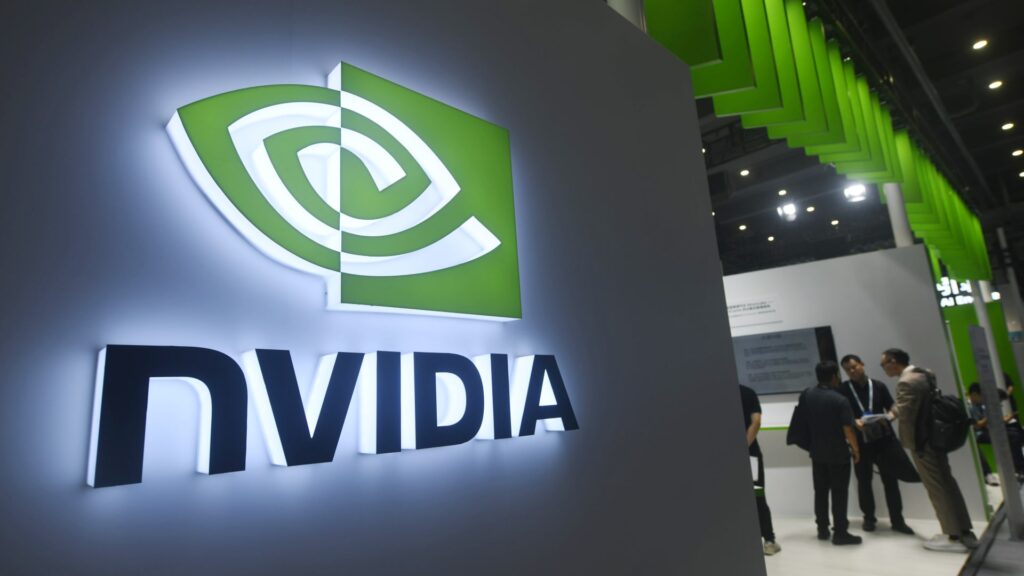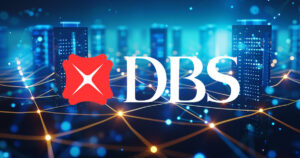Tech companies head to Las Vegas to tout health AI tools

Visitors check out Nvidia’s AI technology at the 2024 Apsara Conference in Hangzhou, China, on September 19, 2024.
Costfoto | Nurphoto | Getty Images
Nvidia, Google, Microsoft and dozens of other tech companies are descending on Las Vegas next week to showcase artificial intelligence tools they say will save doctors and nurses valuable time.
Sunday marks the official start of a health-care technology conference called HLTH, which is expected to draw more than 12,000 industry leaders this year. CNBC will be on the ground. Based on the speaking agenda and announcements leading up to the conference, AI tools to conquer administrative burdens will be the star of this year’s show.
Doctors and nurses are responsible for mountains of documentation as they work to keep up with patient records, interface with insurance companies and comply with regulators. Often, these tasks are painstakingly manual, in part because health data is siloed and stored across multiple vendors and formats.
The daunting administrative workload is a major cause of burnout in the industry, and it’s part of the reason a nationwide shortage of 100,000 health-care workers is expected by 2028, according to consulting firm Mercer. Tech companies, eager to carve out a piece of a market that could top $6.8 trillion in spending by the decade’s end, argue that their generative AI tools can help.
Alex Schiffhauer, group product manager at Google, speaks during the Made By Google event at the company’s Bay View campus in Mountain View, California, Aug. 13, 2024.
Josh Edelson | AFP | Getty Images
Google, for instance, said it’s working to expand its health-care customer base by tackling administrative burden with AI.
On Thursday, the company announced the general availability of Vertex AI Search for Healthcare, which it introduced in a trial capacity during HLTH last year. Vertex AI Search for Healthcare allows developers to build tools to help doctors quickly search for information across disparate medical records, Google said. New features within Google’s Healthcare Data Engine, which helps organizations build the platforms they need to support generative AI, are also now available, the company said.
Google on Thursday released the results of a survey that said clinicians spend nearly 28 hours a week on administrative tasks. In the survey, 80% of providers said this clerical work takes away from their time with patients, and 91% said they feel positive about using AI to streamline these tasks.
Microsoft CEO Satya Nadella speaks at a company event on artificial intelligence technologies in Jakarta, Indonesia, on April 30, 2024.
Dimas Ardian | Bloomberg | Getty Images
Similarly, Microsoft on Oct. 11 announced its collection of tools that aim to lessen clinicians’ administrative workload, including medical imaging models, a health-care agent service and an automated documentation solution for nurses, most of which are still in the early stages of development.
Microsoft already offers an automated documentation tool for doctors through its subsidiary, Nuance Communications, which it acquired in a $16 billion deal in 2021. The tool, called DAX Copilot, uses AI to transcribe doctors’ visits with patients and turn them into clinical notes and summaries. Ideally, this means doctors don’t have to spend time typing out these notes themselves.
Nurses and doctors complete different types of documentation during their shifts, so Microsoft said it’s building a separate tool for nurses that’s best suited to their workflows.
AI scribe tools such as DAX Copilot have exploded in popularity this year, and Nuance’s competitors, such as Abridge, which has reportedly raised more than $460 million, and Suki, which has raised $165 million, will also be at the HLTH conference.
Dr. Shiv Rao, the founder and CEO of Abridge, told CNBC in March that the rate at which the health-care industry has adopted this new form of clinical documentation feels “historic.” Abridge received a coveted investment from Nvidia’s venture capital arm that same month.
Nvidia is also gearing up to address doctor and nurse workloads at HLTH.
Kimberly Powell, the company’s vice president of health care, is delivering a keynote Monday that will explain how using generative AI will help health-care professionals “dedicate more time to patient care,” according to the conference’s website.
Nvidia’s graphics processing units, or GPUs, are used to create and deploy the models that power OpenAI’s ChatGPT and similar applications. As a result, Nvidia has been one of the primary beneficiaries of the AI boom. Nvidia shares are up more than 150% year to date, and the stock tripled last year.
The company has been making steady inroads into the health-care sector in recent years, and it offers a range of AI tools across medical devices, drug discovery, genomics and medical imaging. Nvidia also announced expanded partnerships with companies such as Johnson & Johnson and GE HealthCare in March.
While the health-care sector has historically been slow to adopt new technology, the buzz around administrative AI tools has been undeniable since ChatGPT exploded onto the scene two years ago.
Even so, many health systems are still in the early stages of evaluating tools and vendors, and they’ll be making the rounds on the HLTH exhibition floor. Tech companies will have to prove they have the chops to tackle one of health care’s most complex problems.
#Tech #companies #Las #Vegas #tout #health #tools
News plays a pivotal role in our lives by keeping us informed and connected to the world. It serves as a critical source of information, offering updates on current events, politics, economics, science, and more. Through news, we gain awareness of global issues and local developments, helping us make informed decisions in our personal and professional lives. News also fosters discussion and debate, encouraging critical thinking and perspective-taking. Moreover, it promotes transparency and accountability among governments, businesses, and other institutions. In a rapidly changing world, staying updated with the news enables us to adapt to new challenges and opportunities, shaping our understanding of the complexities of society. Ultimately, news is not just about information; it empowers us to participate actively in the world around us, contributing to a more informed, engaged, and responsible global citizenry.
Health is fundamental to our well-being and quality of life, making it an essential aspect of daily existence. It encompasses physical, mental, and emotional aspects, influencing our ability to function effectively and enjoy life fully. Prioritizing health allows individuals to maintain optimal physical fitness, reducing the risk of diseases and promoting longevity. Mental health, equally crucial, affects our cognitive abilities, emotional stability, and overall happiness. Investing in preventive healthcare through exercise, balanced nutrition, and regular medical check-ups helps in early detection of potential health issues, ensuring timely intervention and treatment. Beyond individual benefits, a population’s health impacts societal productivity and economic stability. Governments and organizations worldwide emphasize public health initiatives to address pandemics, health disparities, and promote overall well-being. Ultimately, health serves as the foundation upon which we build our lives, influencing our ability to pursue goals, nurture relationships, and contribute meaningfully to society.
Money plays a crucial role in our lives as a means of financial security and freedom. It enables us to meet basic needs such as food, shelter, and healthcare, while also providing opportunities for education, travel, and personal growth. Beyond material comforts, money facilitates social connections and experiences that enrich our lives. It empowers individuals to invest in their futures, whether through savings, investments, or entrepreneurial ventures, thereby fostering economic stability and growth. However, the pursuit of wealth should also be balanced with ethical considerations, as money can influence relationships and societal dynamics. Responsible management of finances is key to achieving long-term goals and mitigating financial stress. Ultimately, while money is a tool for achieving aspirations and fulfilling desires, its true value lies in how it is utilized to improve both personal well-being and the broader community.
Earning Easy Money in 2024: Opportunities and Considerations 💸
In 2024, the landscape of earning easy money presents diverse opportunities, albeit with considerations. The digital age offers platforms for freelancing, online trading, and e-commerce, allowing individuals to leverage skills and creativity for financial gain. Cryptocurrency investments continue to allure with potential for quick profits, yet they entail high volatility and risk. Moreover, the rise of the gig economy enables flexible work arrangements through apps and websites, offering quick payouts but often without job security or benefits. Passive income streams such as rental properties and investments in stocks or bonds remain viable, but demand initial capital and ongoing management. Amid these options, caution is essential to avoid scams and unsustainable ventures promising overnight success. Ultimately, while the allure of easy money persists, informed decisions, diligence, and a long-term perspective are crucial for sustainable financial growth and security in the dynamic year ahead.


